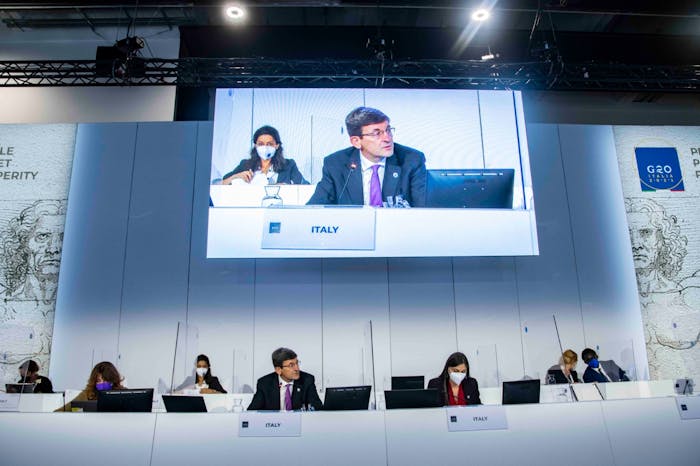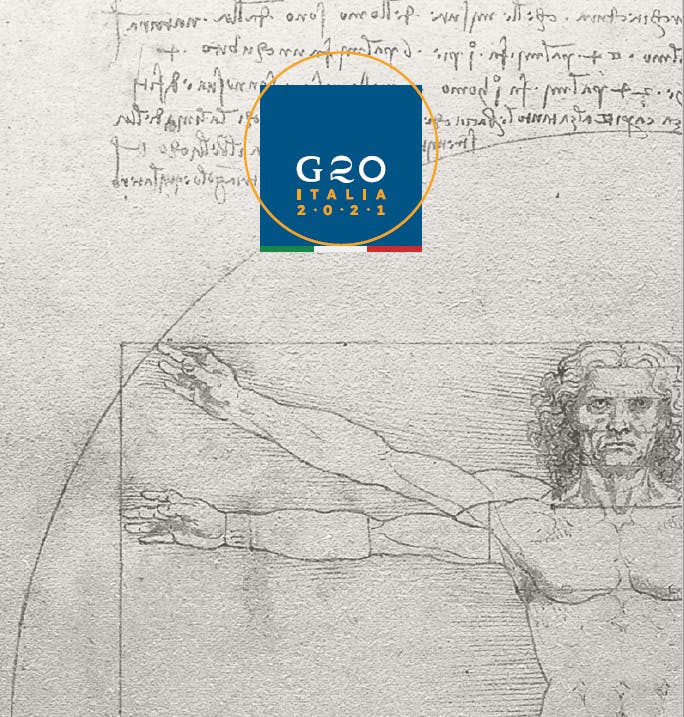The Declaration of G20 Digital Ministers
G20 Digital Ministers adopted the Declaration that leverages the potential of digitalisation for a resilient, strong, sustainable and inclusive recovery

This morning the Digital Ministers’ Meeting took place in Trieste under the Italian G20 Presidency. At the end of the Ministerial Meeting, the Declaration of G20 Digital Ministers was adopted by the Member States. The Declaration recognizes the fundamental contribution that digital may have in supporting governments in building stronger, inclusive and sustainable societies, especially in the aftermath of the COVID-19 pandemic.
The themes connected to the digital transition will become an integral part of next G20 editions’ agenda, thanks to the important result achieved by the Italian Presidency: the transformation of the Digital Economy Task Force (DETF) into a permanent Digital Economy Working Group (DEWG).
The Declaration is the collaborative outcome of rounds of discussions held over the course of past G20 Presidencies. In this regard, the Italian Presidency, was an opportunity for mutual sharing and learning among Members, while staying cognizant of the diverse normative and regulatory approaches.
The Ministers acknowledged the importance of international cooperation in the attainment of the United Nations Sustainable Development Goals (SDGs), in line with the priorities of the G20 Italian Presidency, People, Planet and Prosperity. They identified as key topics the areas of “Digital Economy” and “Digital Government”.

Digital government: the main points of the Ministerial Declaration
The Ministerial Declaration focuses on thematic areas regarding the digital transition of the public sector. More specifically, the Declaration:
Recognises the importance of the digitalization of public services for citizens and businesses, emerged especially during the COVID-19 pandemic, and the necessity of enabling inclusive, accessible, and human-centric digital public services, while protecting privacy. Digitalization should not, however, lead to excluding businesses and citizens who do not wish or are not able to use digital public services. Ministers welcomed the G20 Compendium on the use of digital tools for public service continuity (PDF), developed with the support of the OECD, and committed to continue working towards a collection of practical solutions to guide the implementation of integrated rights-based, human-centric, user driven, transparent, safe and secure, resilient, proactive, ethical and inclusive public services.
Acknowledges the Digital identity as “easily usable, reliable, secure, trusted, and portable”. The diverse digital identity systems adopted by G20 countries provide citizens and businesses with a safe and privacy-compliant access to digital services. The Declaration also makes reference to the potential of digital identity in humanitarian and emergency scenarios and its potential contribution in the attainment of the United Nations Sustainable Development Goal Target 16.9: “to provide legal identity for all”. To support international dialogue on digital identity and bring forward the discussion on interoperability, G20 Members contributed to a G20 Collection of Digital Identity practices (PDF), developed in collaboration with the OECD,
Recognises the role of the so-called “agile regulation” in fostering innovation and economic growth, as well as preventing the possible negative impacts of technological progress on the environment and society. G20 members contributed to this topic by participating in the Survey on agile regulation across G20 Members (PDF), which collects the diverse approaches adopted to foster a more agile, flexible, and resilient regulation, including the so called “regulatory sandboxes” - limited spaces which allow for safe experimentation.
The digital transition at the center of G20
The Italian Presidency was able to define a robust and focused Declaration, achieving also the goal of transforming the Digital Economy Task Force into a permanent working group
Vittorio Colao, Minister for technological innovation and digital transition
The transformation of the Digital Economy Task Force (DETF) into a permanent working group will give continuity to the G20 debate on digitalization. The Digital Economy Working Group (DEWG) will lead the discussion on digital transition for the next G20 Presidencies.

